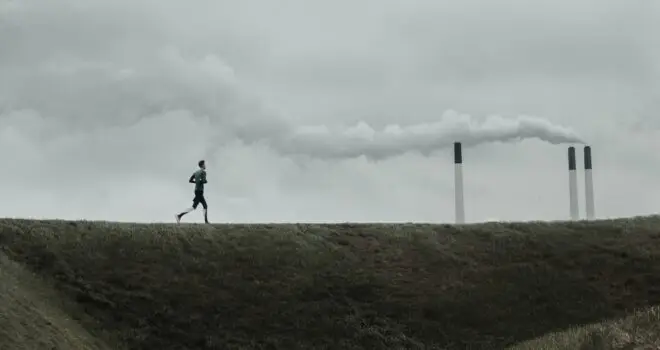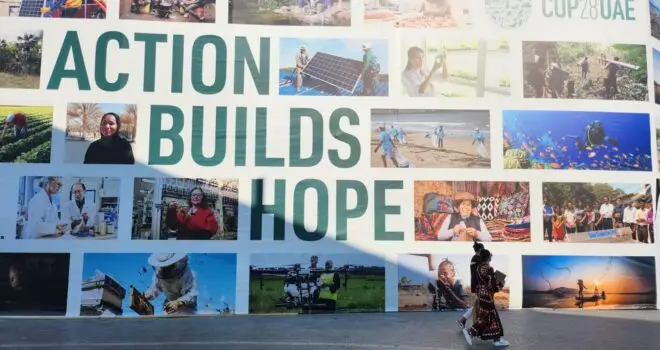GENEVA (11 October 2021) – The World Heart Federation has joined a global call to action for governments to update their national climate commitments under the Paris Agreement, in line with their fair share of limiting warming to 1.5°C. The call comes ahead of the UN climate conference (COP26) in Glasgow, UK as more than 300 organizations representing at least 45 million nurses, doctors and health professionals worldwide – about three quarters of the global health workforce – signed an open letter to the 197 government leaders and national delegations ahead of COP26, warning that the climate crisis is the single biggest health threat facing humanity, and calling on world leaders to deliver on climate action.
The letter’s publication coincides with the release today of a new report by the World Health Organization (WHO), which argues that countries can only ensure a long-term recovery from the pandemic by implementing ambitious climate commitments. The report delivers ten high-level recommendations, backed up by action points, resources and case studies, including the need to place health and social justice at the heart of the UN climate talks.
The letter states: “Wherever we deliver care, in our hospitals, clinics and communities around the world, we are already responding to the health harms caused by climate change,”. “Those people and nations who have benefited most from the activities that caused the climate crisis, especially fossil fuel extraction and use, have a great responsibility to do everything possible to help those who are now most at risk.”
By integrating health and equity into climate policy, governments have the opportunity to protect peoples’ health, maximise returns on investments, and build public support for the urgently needed responses from governments to the climate crisis.”
Both the letter and the report argue that health and equity must be at the center of climate change response; while the letter calls for action, the report provides the blueprint for delivering climate action that will protect the health of people around the world.
The letter, which has been signed by diverse medical organisations and high profile individuals, such as WHO Director-General Dr Tedros Adhanom Ghebreyesus, the World Medical Association, the International Council of Nurses and Doctors for Extinction Rebellion Switzerland, calls on all governments to update their national climate commitments under the Paris Agreement, in line with their fair share of limiting warming to 1.5°C. A recent report by UN Climate Change (UNFCCC) found that countries’ collective climate commitments are falling far short of this goal, and would lead to a global temperature rise of at least 2.7°C by the end of the century (3,4).
The 45 million health professionals represented in the letter are demanding a rapid and just transition away from fossil fuels; for high income countries to provide the promised transfer of climate funds; for investments in resilient and low carbon health systems; and for pandemic recovery investments to support climate action and reduce social and health inequities.
The signatories of the open letter represent every region of the world, and include the International Council of Nurses, the World Medical Association, the International Federation of Medical Students Associations, the International Confederation of Midwives, and the International Pediatrics Association.
ENDS
Notes to Editors:
More information on the #HealthyClimate Prescription letter is available here
The WHO report “The Health Argument for Climate Action” will be available here. As part of key climate action, the report recommends to:
- place health and social justice at the heart of the UN climate talks, prioritizing those climate interventions with the largest health-, social- and economic gains;
- guide a rapid transition to renewable energy, to save lives from air pollution, particularly from coal combustion, ensuring energy security for health care facilities, and end energy poverty;
- promote sustainable, healthy urban design and transport systems, with improved land-use, access to public space, and priority for walking, cycling and public transport;
- promote sustainable food supply chains and more nutritious diets that deliver on both climate and health outcomes;
- finance a transition towards a wellbeing economy;
- mobilize and support the health community on climate action.
Climate Action Tracker, Fair Share: https://climateactiontracker.org/methodology/cat-rating-methodology/fair-share/
UNFCCC, Nationally determined contributions under the Paris Agreement, 17 September 2021: https://unfccc.int/sites/default/files/resource/cma2021_08_adv_1.pdf
Media contacts:
Mihela Kralj, Communications Manager, World Heart Federation – [email protected]
Dave Walsh, Communications Advisor, Global Climate and Health Alliance, +34 691 826 764 (Europe) – [email protected] is checked regularly.
Ceridwen Johnson, World Health Organization – [email protected]
Arthur Wyns, World Health Organization – [email protected]


